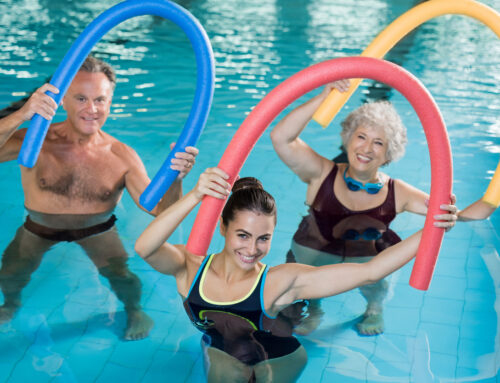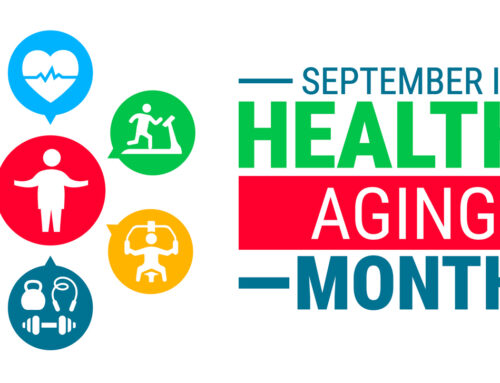Arthritis isn’t kind to knitters, and knee replacements can knock out a lifelong badminton career. Seniors often abandon hobbies they love as their physical abilities decline. The problem is that this is a slippery slope — research shows that involvement in leisure activities makes us happier and healthier.
Getting older doesn’t have to mean the end of favorite activities. Whether you want to help your parents enjoy their retirement, or you want to keep doing what you love, the options are there.
Making Your Hobbies Work
It’s not realistic to think that the way you do things won’t change as you age. Slowing down, failing eyesight or hearing, and injuries can put a dent in anyone’s enthusiasm for their activities. For most hobbies, though, there’s a way to continue participating in them as a regular part of a senior lifestyle.
The following considerations can help you figure out the best way to make adaptations for yourself or your loved ones:
What about this activity do I love?
Do you enjoy the time spent with friends? What about getting outdoors? By identifying the aspects of your hobbies you value the most, you can make the right changes to fit your abilities.
What kind of budget do I have?
Some accommodations might be more expensive than others. Paralympians have adaptive equipment that costs thousands of dollars. Luckily, most equipment or solutions won’t be that expensive — but they will cost something. Decide in advance how much you’re willing to spend to continue enjoying your hobbies.
What am I willing to give up to keep participating?
Motivations for hobbies change as we get older. You might have once been the best on the court. You probably won’t be anymore- but that doesn’t mean you have to stop enjoying it. It’s not about the competition anymore — it’s about the experience. Being willing to give up parts of what you liked about your hobby can help you enjoy what you can.
Fishing Accommodations for Seniors
Fishing is a highly adaptable sport. Fishing enthusiasts don’t have to hang up their poles once they can no longer bait a hook. With a few adjustments, most people can continue pulling in fish indefinitely.
Equipment
Because fishing is such a universally beloved sport, adaptive equipment is easy to come by. Organizations like Fishing Has No Bounds specialize in making sure anyone, regardless of restrictions, can fish recreationally. Their site can direct you to adaptive equipment such as wrist-saver rods and seated rod-holders.
Excursions
Some companies specialize in low-effort fishing excursions. Their experts can assist fishers in whatever way they like. Some will even bait and cast the line for their guests! Booking a regular excursion can help keep a rod in your hand without having to worry about your abilities.
Company
The best way to keep catching those fish is by bringing someone along to help. There might not be anyone in your family who enjoys fishing — but that doesn’t mean you have to go alone? Paid companions can help seniors with transportation, participate in activities with them or visit them at home. FirstLantic Healthcare can connect you with the right person to help you keep chasing the next big catch or simply stay in and watch a movie.
Art Accommodations for Seniors
Art becomes a pivotal part of the artist’s life. The loss of the ability to create can be heartbreaking. However, with a few adjustments, most artists can continue their creative pursuits as a vital part of a senior lifestyle.
Adaptive Equipment
Many art stores offer adaptive equipment for artists who need something a little different. These can include easy-to-hold paintbrushes and wheelchair-accessible easels. Knitters can find bigger needles and thick yarn at most fabric supply stores.
New Mediums
The artist’s eye often translates to other mediums. Your preferred form of art therapy may not be compatible with your current limitations, even with adaptive equipment. But your skill with art can easily translate to other, more maneuverable methods. Cross-stitchers can take up punch needle designs. Sketchers can try digital drawing, where the zoom feature makes details more manageable.
Reading Accommodations for Seniors
For a book lover, losing the ability to read your favorite books can feel like losing friends. Reading and absorbing media helps us feel connected to one another and the world. Luckily, reading is one of the hobbies most easily adapted to aging.
Large Print Books
After glasses, the most obvious solution to the loss of eyesight is to find books with larger print. Most e-readers allow the reader to adjust the font size, turning any text into a large-print book. If you’d prefer to stick to ink and paper, most bookstores have a selection of large print books available.
Audio Books
Podcasts and audiobooks are an option for those whose eyesight is failing or for those who can’t handle a book or device. Voice-activated devices, such as Google Home or Alexa, or Siri on an iPad or iPhone, can allow you to access content without having to use your hands.
Home Companions for Seniors
Seniors will remain most active and engaged in hobbies if they have assistance when the mood strikes. FirstLantic can help with that. They offer a wide variety of senior home solutions, from companions to home health care. Companions are available for your loved ones, whether for getting out of the house or taking care of daily activities. Click here to find out more about our services.
To read more of our FirstLantic blogs, click here
 AVAILABLE 24 HOURS A DAY/7 DAYS A WEEK
AVAILABLE 24 HOURS A DAY/7 DAYS A WEEK Careers
Careers







